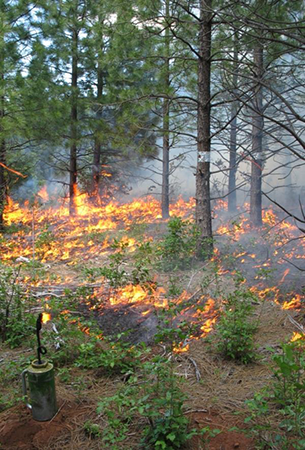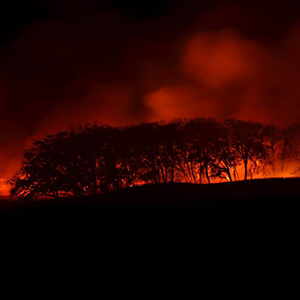Breadcrumb
Outreach

The co-production model for research will also provide for translation and exchange of acquired knowledge through a number of modalities. Complex scientific findings/reports must be interpreted by the authors for the managers, policymakers, and the general public. Oftentimes, a body of scientific knowledge (many scientific papers accompanied by field experience) must be distilled before becoming usable by policymakers. Humboldt Fire Resilience Institute will accomplish this vital role of communicating science to managers and policymakers by publishing science briefs and other white papers that relate to key management issues.
Field Tours & Workshops
Effective solutions to wildfire challenges is dependent on collaborations among scientists and managers. Managers can provide essential insight about knowledge gaps to fire scientists necessary to improve management outcomes. In return, scientists need to communicate findings to managers to improve outcomes. The institute will work to facilitate collaborations among managers and scientists to communicate management needs and scientific findings.
Community Outreach
The application of fire science and management is contingent on gaining and maintaining trust and support of community members. Early engagement of stakeholders in the decision making and implementation process is an important aspect to completing projects. Our institute will conduct surveys and use other approaches to determine effective and efficient modes of engaging and communicating science and management to the broader public.
Science Synthesis

While substantive advances in fire science have been made, there remains a strong need to synthesize scientific knowledge to identify persistent gaps, evaluate existing practices,communicate best management practices, and inform policy. We will focus on developing a consortium of fire scientists and practitioners to compile and synthesize existing scientific understanding. These efforts will be enhanced by the development of a program that supports established and emerging scholars in the field of fire science.
Science-based Policy
Advocating on behalf of the best available science to policy makers is necessary to foster appropriate policies and sufficient funding to advance the most effective management practices that also minimizes negative impacts on resources, ecosystems, and human communities. Science synthesis and other efforts of the institute will be used to communicate with policy makers at all levels to support best practices.





